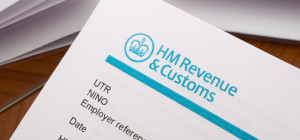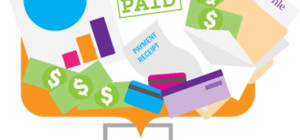 In generic job interview terms, problem solving is almost always listed as one of the key professional skills. This makes perfect sense on some levels, as individuals with the capacity for analytical thought and composure under pressure are well placed to thrive within the business environment and evolve into senior management positions.
In generic job interview terms, problem solving is almost always listed as one of the key professional skills. This makes perfect sense on some levels, as individuals with the capacity for analytical thought and composure under pressure are well placed to thrive within the business environment and evolve into senior management positions.
This is only beneficial if you have an innate understanding of business and its mechanics; however, as otherwise you run the significant risk of not recognising problems before it is too late. While reactive problem solving skills look great on paper, those who emerge as successful entrepreneurs and professionals are capable of being proactive and eliminating danger before it threatens your business infrastructure.
In order to identify pertinent business issues, you will need to have an in-depth understanding of how the world of commerce works. This applies to even simple elements such as supply and demand, as these underlying rules govern the business world and make the difference between success, consolidation or failure. With this in mind, let's consider the following recurring business issues and highlight the initial signs that make them apparent to entrepreneurs.
1. Your Business has Strained Cash Flow
While strained cash flow may not seem like a potentially debilitating issue, it may indicate a deeper lying issue with your business. After all, a steady and reliable cash flow is indicative of a healthy company, and one which is capable of generating regular turnover across a diversity of clients. Businesses with a viable cash flow also tend to be underpinned by a successful commercial model, and one which was designed to identify the difference between secured orders and actual turnover.
Without a healthy cash flow you may run into a scenario where your accounts are inaccurate or you are unable to repay creditors. There are early signs of this to look for, however, including regular and recurring pressure points that place a strain on your cash flow. If you regularly find yourself struggling to make repayments or are forced to chase clients for quick payments, you may find that your cash flow is operating at an unhealthy level.
2. Your Business Cannot Access Credit
Although your business should never rely on credit, it should always be in a position where it is able to access finance from a viable lender. Let's say that you require credit to expand storage space in relation to an impending order, for example, as this would simply be a case of presenting an order confirmation to the lender and organising repayments. If you are unable to secure such credit due to a poor rating or lack of financial resources, this could indicate that your business has an issue that needs to be resolved.
Your business may also be using credit irresponsibly to cover a shortfall in profits and drive short-term growth. This can simply delay rather than resolve issues, as successful companies only ever access credit to make secured and significant investments. To review your business, consider comparing your existing profits with the amount of credit already in the business, as this will provide an insight into your existing standing.
3. Your Business Struggles to Repay its Taxes
Depending on the nature of your firm, you may be eligible to pay a combination of VAT, PAYE and National Insurance contributions. These payments need to managed and made on-time, while it is also important to settle such debts in-full and according to the terms of any agreement. Successful and established businesses have no issue in achieving this, meaning that they ultimately save money and ensure that they remain compliant with existing taxation laws.
With this in mind, adopt a proactive approach towards reviewing your tax requirements and existing financial budget. More specifically, you need to ensure that your firm has enough disposable capital to meet all tax levies, without compromising on margins or placing alternative expenditure plans in jeopardy. From this point on, you should also make sure that you prioritise the repayment of taxes and make these a central feature of your commercial budget.






